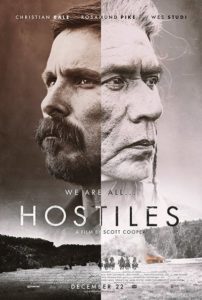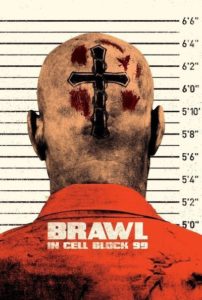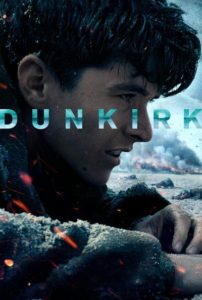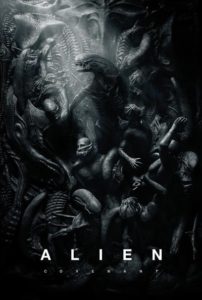
First things first, if you think you’re going into this seeing a John Cena movie, you will be sorely disappointed. This movie is similar to
127 Hours, Cast Away, I Am Legend, or
All Is Lost in that it revolves almost entirely around a single character. However, some significant differences exist between this one and those just stated. There are no flashback scenes. This movie is done almost entirely in real time. And it occurs in a single location, though
127 Hours, for the most part, does as well.
The Wall is similar, though, in that each of the mentioned movies experiences extreme periods of hopelessness during a part of or a majority of the movie.
The Wall isn’t nearly as good as these other movies, but it was unique enough to hold your interest. Whereas
127 Hours was based on a true story, where
All Is Lost is easily believable, and where
I Am Legend is more of a science fiction movie for which we must suspend our belief,
The Wall falls somewhere in between. I loved that it was just 81 minutes long. It didn’t need to be any longer, so why drag something out when it doesn’t have to be? And the first 20 minutes were completely engrossing. I knew little about the movie but not enough to know where it was going. But then it took a turn for the weird that took the believability aspect out of it and turned it into a game of cat and mouse that, while entertaining, was not something I’d expect out of my war movies.
Continue reading The Wall (2017) →
 The very first scene of Scott Cooper’s (Crazy Heart, Out of the Furnace) under-the-radar Hostiles lets you know one thing right off the bat. We get a 10-minute scene where a four-person group of Comanche warriors comes rolling out of nowhere and attacks a family of five in the brutalist of fashions before burning down the ranch and taking off with their horses. After this scene, the title Hostiles pops up on the screen, and we quickly know that we are in for something different than Will Smith’s Wild Wild West. This movie is not for the weak at heart. If you do not like tragedy, this film is not for you. If you have the stomach for, sometimes, senseless killing, characters who carry anger so deep that it burns their souls and guilt so heavy that it tears lives apart, then this movie could be for you. If you crave a good old-fashioned western, this movie will suffice. And if you want to see A-listers like Christian Bale (The Fighter, The Dark Knight Rises), Rosamund Pike (Gone Girl, A United Kingdom), Jesse Plemons (The Post, Other People), Timothee Chalamet (Call Me By Your Name, Lady Bird) and Ben Foster (Hell or High Water, Lone Survivor) continue to cement their names in Hollywood then you can’t go wrong with Hostiles, easily one of the five best movies of 2017. Though it’s unlikely to dethrone Wind River for me, it’s doing its best to make a case in the 11th hour.
The very first scene of Scott Cooper’s (Crazy Heart, Out of the Furnace) under-the-radar Hostiles lets you know one thing right off the bat. We get a 10-minute scene where a four-person group of Comanche warriors comes rolling out of nowhere and attacks a family of five in the brutalist of fashions before burning down the ranch and taking off with their horses. After this scene, the title Hostiles pops up on the screen, and we quickly know that we are in for something different than Will Smith’s Wild Wild West. This movie is not for the weak at heart. If you do not like tragedy, this film is not for you. If you have the stomach for, sometimes, senseless killing, characters who carry anger so deep that it burns their souls and guilt so heavy that it tears lives apart, then this movie could be for you. If you crave a good old-fashioned western, this movie will suffice. And if you want to see A-listers like Christian Bale (The Fighter, The Dark Knight Rises), Rosamund Pike (Gone Girl, A United Kingdom), Jesse Plemons (The Post, Other People), Timothee Chalamet (Call Me By Your Name, Lady Bird) and Ben Foster (Hell or High Water, Lone Survivor) continue to cement their names in Hollywood then you can’t go wrong with Hostiles, easily one of the five best movies of 2017. Though it’s unlikely to dethrone Wind River for me, it’s doing its best to make a case in the 11th hour.
 The very first scene of Scott Cooper’s (Crazy Heart, Out of the Furnace) under-the-radar Hostiles lets you know one thing right off the bat. We get a 10-minute scene where a four-person group of Comanche warriors comes rolling out of nowhere and attacks a family of five in the brutalist of fashions before burning down the ranch and taking off with their horses. After this scene, the title Hostiles pops up on the screen, and we quickly know that we are in for something different than Will Smith’s Wild Wild West. This movie is not for the weak at heart. If you do not like tragedy, this film is not for you. If you have the stomach for, sometimes, senseless killing, characters who carry anger so deep that it burns their souls and guilt so heavy that it tears lives apart, then this movie could be for you. If you crave a good old-fashioned western, this movie will suffice. And if you want to see A-listers like Christian Bale (The Fighter, The Dark Knight Rises), Rosamund Pike (Gone Girl, A United Kingdom), Jesse Plemons (The Post, Other People), Timothee Chalamet (Call Me By Your Name, Lady Bird) and Ben Foster (Hell or High Water, Lone Survivor) continue to cement their names in Hollywood then you can’t go wrong with Hostiles, easily one of the five best movies of 2017. Though it’s unlikely to dethrone Wind River for me, it’s doing its best to make a case in the 11th hour.
The very first scene of Scott Cooper’s (Crazy Heart, Out of the Furnace) under-the-radar Hostiles lets you know one thing right off the bat. We get a 10-minute scene where a four-person group of Comanche warriors comes rolling out of nowhere and attacks a family of five in the brutalist of fashions before burning down the ranch and taking off with their horses. After this scene, the title Hostiles pops up on the screen, and we quickly know that we are in for something different than Will Smith’s Wild Wild West. This movie is not for the weak at heart. If you do not like tragedy, this film is not for you. If you have the stomach for, sometimes, senseless killing, characters who carry anger so deep that it burns their souls and guilt so heavy that it tears lives apart, then this movie could be for you. If you crave a good old-fashioned western, this movie will suffice. And if you want to see A-listers like Christian Bale (The Fighter, The Dark Knight Rises), Rosamund Pike (Gone Girl, A United Kingdom), Jesse Plemons (The Post, Other People), Timothee Chalamet (Call Me By Your Name, Lady Bird) and Ben Foster (Hell or High Water, Lone Survivor) continue to cement their names in Hollywood then you can’t go wrong with Hostiles, easily one of the five best movies of 2017. Though it’s unlikely to dethrone Wind River for me, it’s doing its best to make a case in the 11th hour.
 I love a good prison movie. Similarly to how I enjoy films set on trains, edgier (i.e., PG13 or greater) sports movies, alien movies, shipwreck movies, or survival movies set in the jungle, there is something about a good prison movie that perks my intrigue, keeps me interested, and has me thinking about it long after it’s over.
I love a good prison movie. Similarly to how I enjoy films set on trains, edgier (i.e., PG13 or greater) sports movies, alien movies, shipwreck movies, or survival movies set in the jungle, there is something about a good prison movie that perks my intrigue, keeps me interested, and has me thinking about it long after it’s over.  Christopher Nolan (
Christopher Nolan ( Ridley Scott’s (Gladiator,
Ridley Scott’s (Gladiator,  First things first, if you think you’re going into this seeing a John Cena movie, you will be sorely disappointed. This movie is similar to
First things first, if you think you’re going into this seeing a John Cena movie, you will be sorely disappointed. This movie is similar to